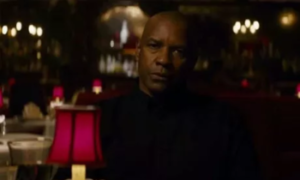
Wackenhut Corp. v. Gutierrez, –S.W.3d–, Lexis ________, Case No. 12-0135 (Tex. Feb. 6, 2015)
In Wackenhut Corp. v. Gutierrez, the Texas Supreme Court, in a per curiam decision without argument, gave additional guidance on the application of the Court’s new approach to the doctrine of spoliation of evidence announced last year in Brookshire Bros. Ltd. v. Aldridge, 438 S.W.3d 9 (Tex. 2014). In this case, the Court looked first at whether an objection to a spoliation instruction in a jury charge was waived and then determined that the procedural and factual history of the case did not warrant a spoliation instruction under Brookshire.
Facts:
A bus owned by Wackenhut with video recording equipment was involved in an accident with Gutierrez. Seven days after the recording, the videos automatically looped over and erased the recorded data from the time of the accident, losing the image of the actual impact. Two days after the accident but before the video was erased, Plaintiff presented Wackenhut with a demand letter, and Wackenhut completed a Notice of Claim and sent it to their corporate headquarters placing it on notice of the claim.
After suit was filed 2 years later, Plaintiff argued Wackenhut spoliated the video evidence. Wackenhut opposed Plaintiff’s Motion for Spoliation of Evidence during pre-trial proceedings. However, Wackenhut did not provide an objection to the spoliation instruction at the charge conference. After the court read the charge to the jury, Wackenhut’s attorney approached the bench and made a generalized objection to inclusion of the spoliation instruction. The trial court acknowledged the objection, but did not comment on or revise the instruction. The jury returned a verdict in Gutierrez’s favor in the amount of $1,201,050.08.
The court of appeals affirmed the trial court, holding that Wackenhut failed to preserve error because Wackenhut delayed in objecting to the instruction until after the charge was read to the jury and failed to provide a specific ground for the objection.
Wackenhut Preserved Error
First, the Court held that the pre-trial briefing coupled with the oral objection were sufficient to preserve error. Despite the clear language of Texas Rules of Civil Procedure 272 and 274 providing that objections not presented before the jury charge is read to the jury are waived, the Court restated its test from prior jurisprudence by explaining that the test is “whether the party made the trial court aware of the complaint, timely and plainly, and obtained a ruling.” State Dep’t of Highways & Pub. Transp. v. Payne, 838 S.W.2d 235, 241 (Tex. 1992); see also Ford Motor Co. v. Ledesma, 242 S.W.3d 32, 43 (Tex. 2007). “The more specific requirements of the rules should be applied . . . to serve rather than defeat this principle.” Payne, 838 S.W.2d at 241.
The Court found that despite the lack of objection before the charge was read, Wackenhut briefed the trial court in pre-trial proceedings on its objection to the instruction in responding to Guiterrez’ pre-trial motion for discovery sanctions. However, the trial court found Wackenhut negligently spoliated the videos. Additionally, during the hearing on Wackenhut’s motion for new trial, the trial judge recognized that Wackenhut did object to the instruction.
The Texas Supreme Court held that Wackenhut preserved error, reasoning that the specific arguments in Wackenhut’s pre-trial briefing and the trial court’s recognition that the instruction was submitted over objection sufficed to meet the underlying principles of Rules 272 and 274.
Plaintiff Not Irreparably Deprived of Ability to Present Case
Applying Brookshire Bros., the Court found an abuse of discretion because the negligent spoliation did not irreparably deprive plaintiff of any meaningful ability to present his claims given the other evidence presented at trial. Given the closely contested nature of the case, the Court held the improper instruction posed a substantial likelihood of harm to defendants. Despite the lack of videos, Gutierrez was still able to present evidence supporting his claim, including (1) the testimony of both drivers; (2) the testimony of an eyewitness Wackenhut employee; (3) witness statements prepared by the drivers and the witness at the time of the accident; (4) testimony of the responding police officer; (5) the police report; (6) Wackenhut’s report to its corporate headquarters; (7) photos of the vehicles and the accident scene; and (8) extensive medical records.
In light of the “abundance of available evidence”, the Court reversed and remanded to the trial court for a new trial.
Conclusions
The Texas Supreme Court’s opinion provides useful guidance into the application of the new standard regarding spoliation of evidence. However, it may have unwittingly opened the flood gates to sloppy jury charge practice, allowing parties to claim they preserved error through pre-trial briefing even though no objection was lodged at the charge conference or before the charge was read to the jury. Future cases will show whether the more flexible and equitable “principles” undergirding Rules 272 and 274 apply to objections to other types of jury instructions or whether the strictures of the Rules are eased only as to spoliation instructions, given their highly prejudicial impact on the jury.

